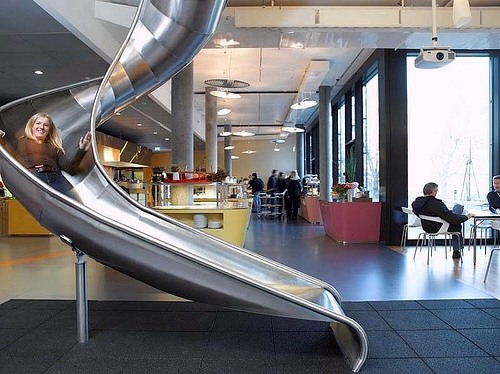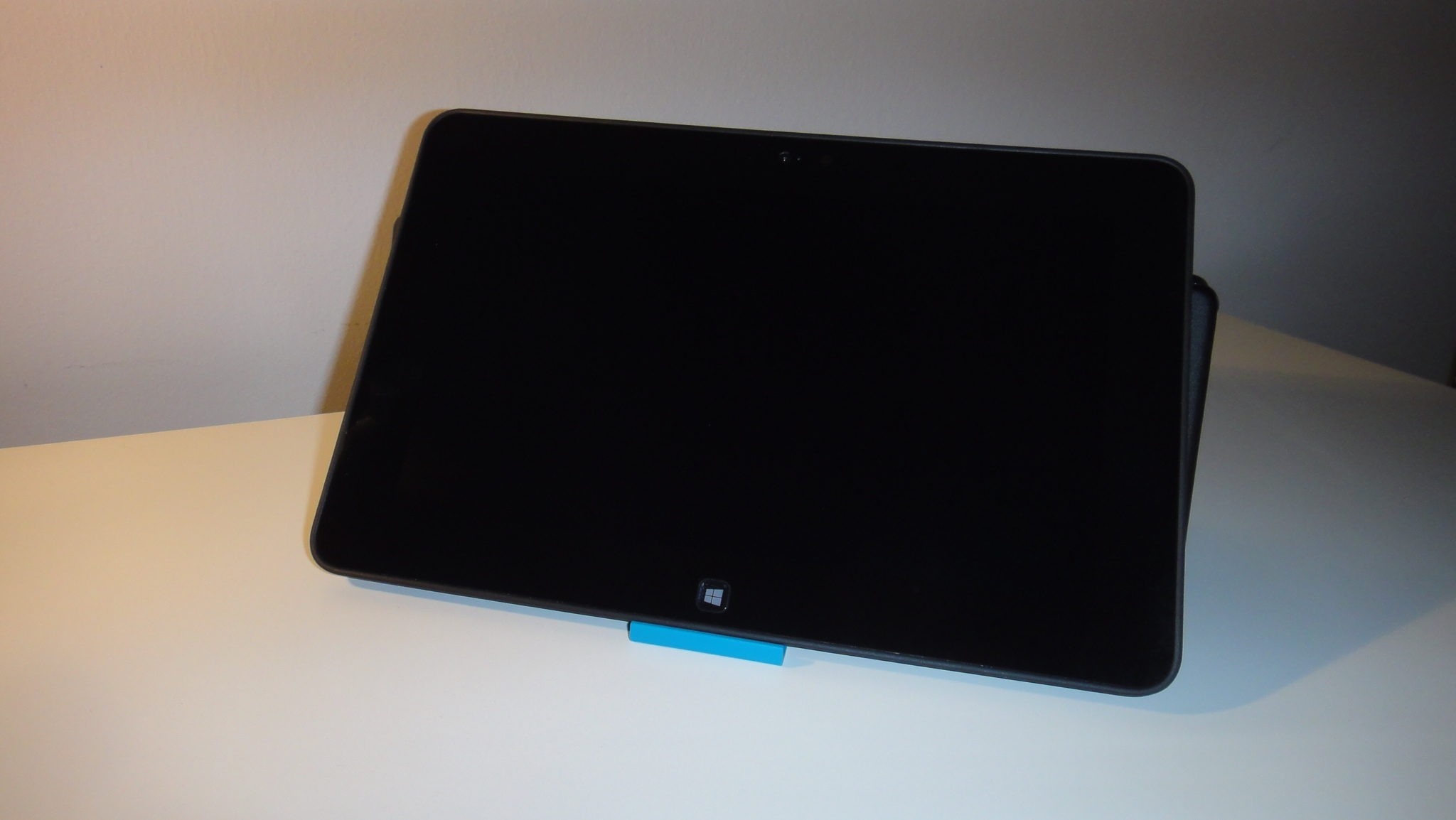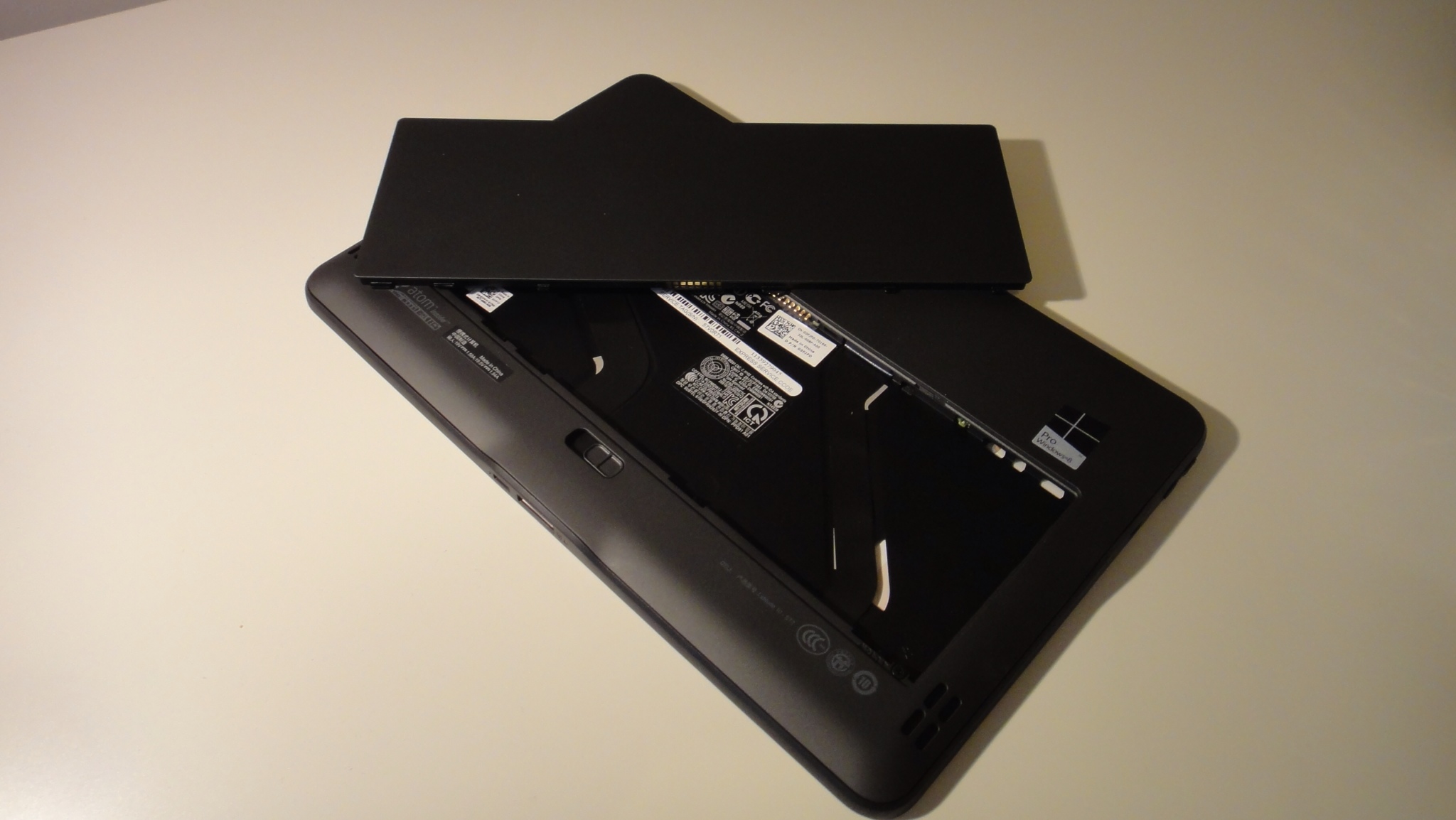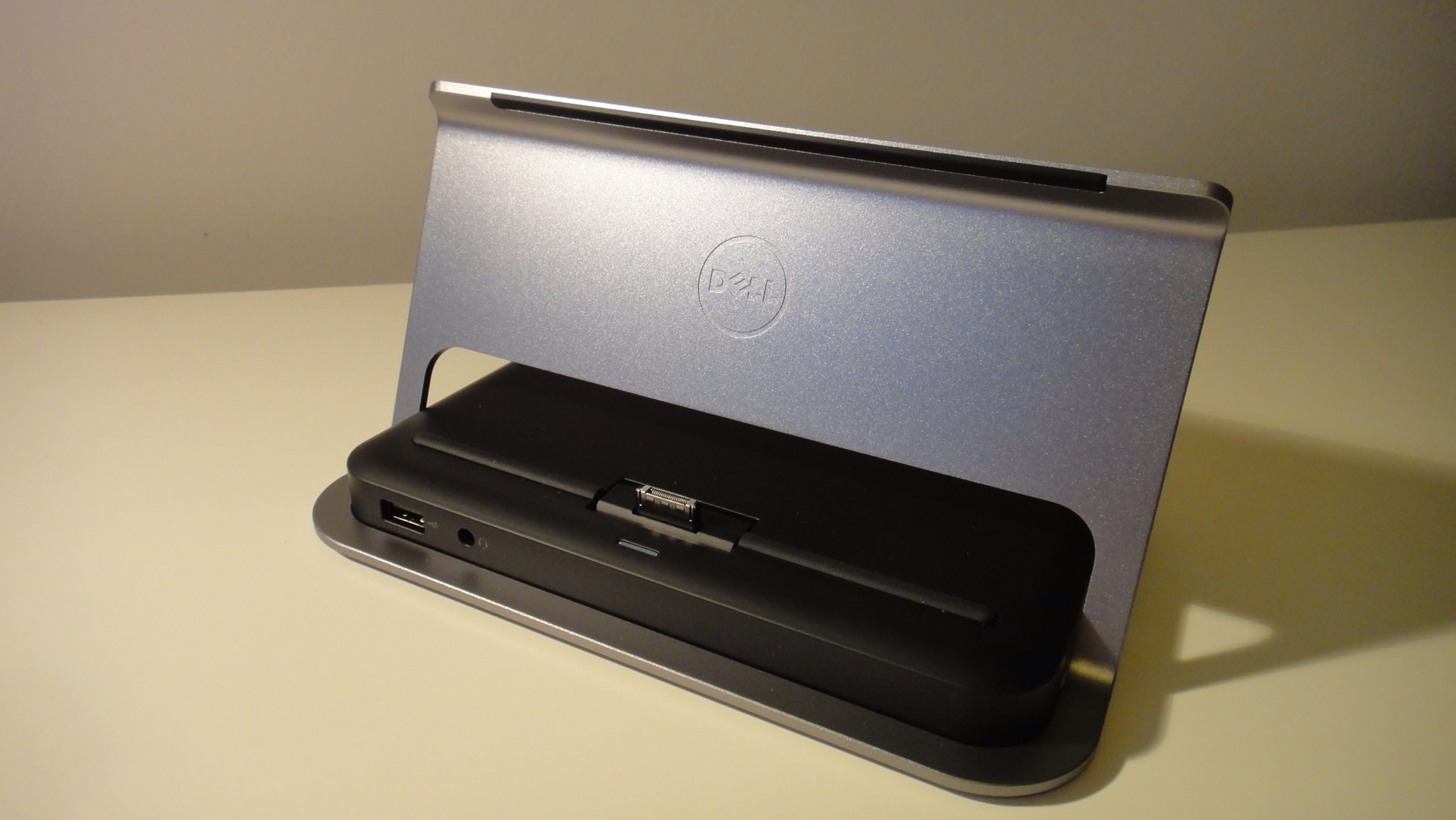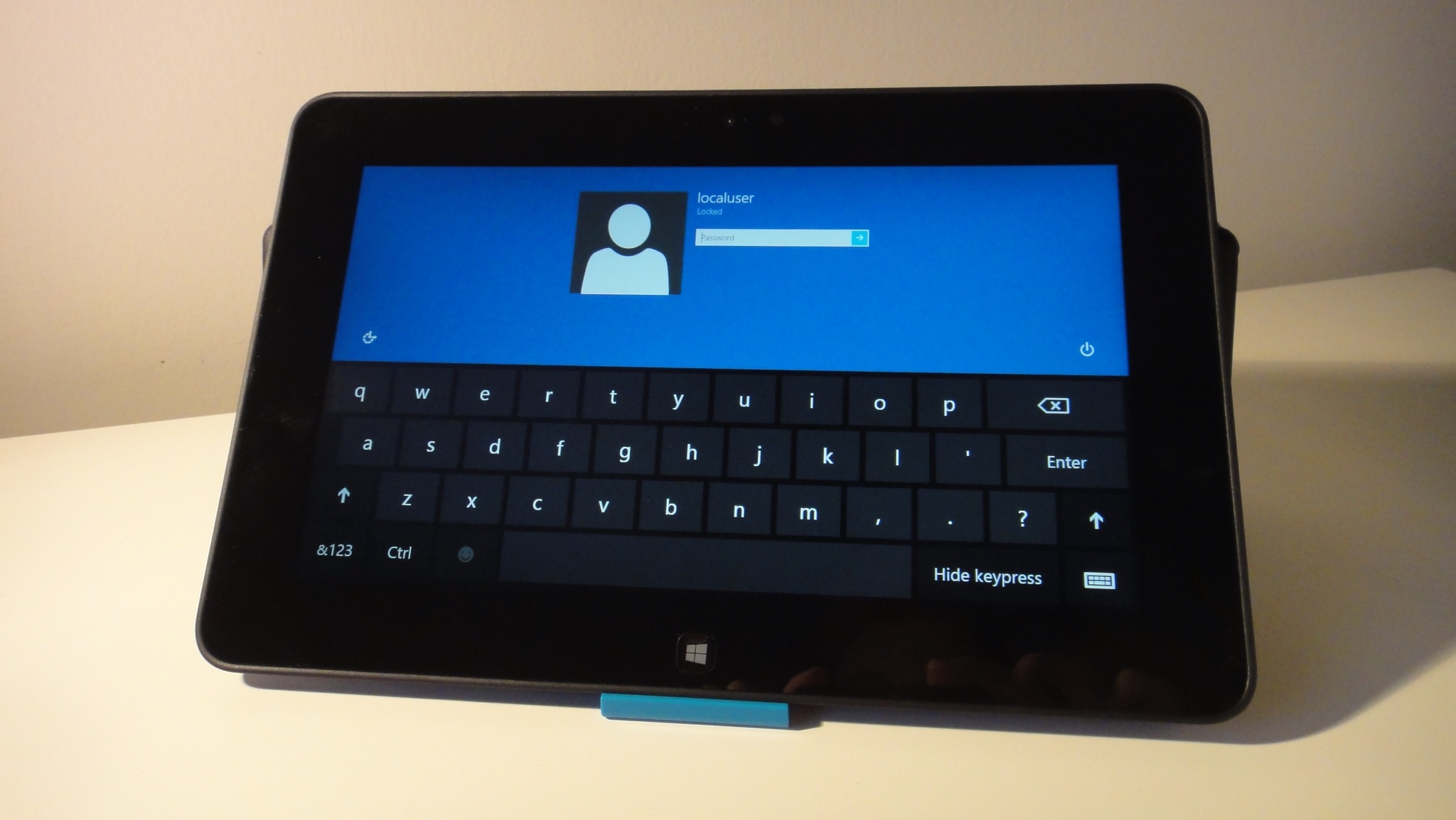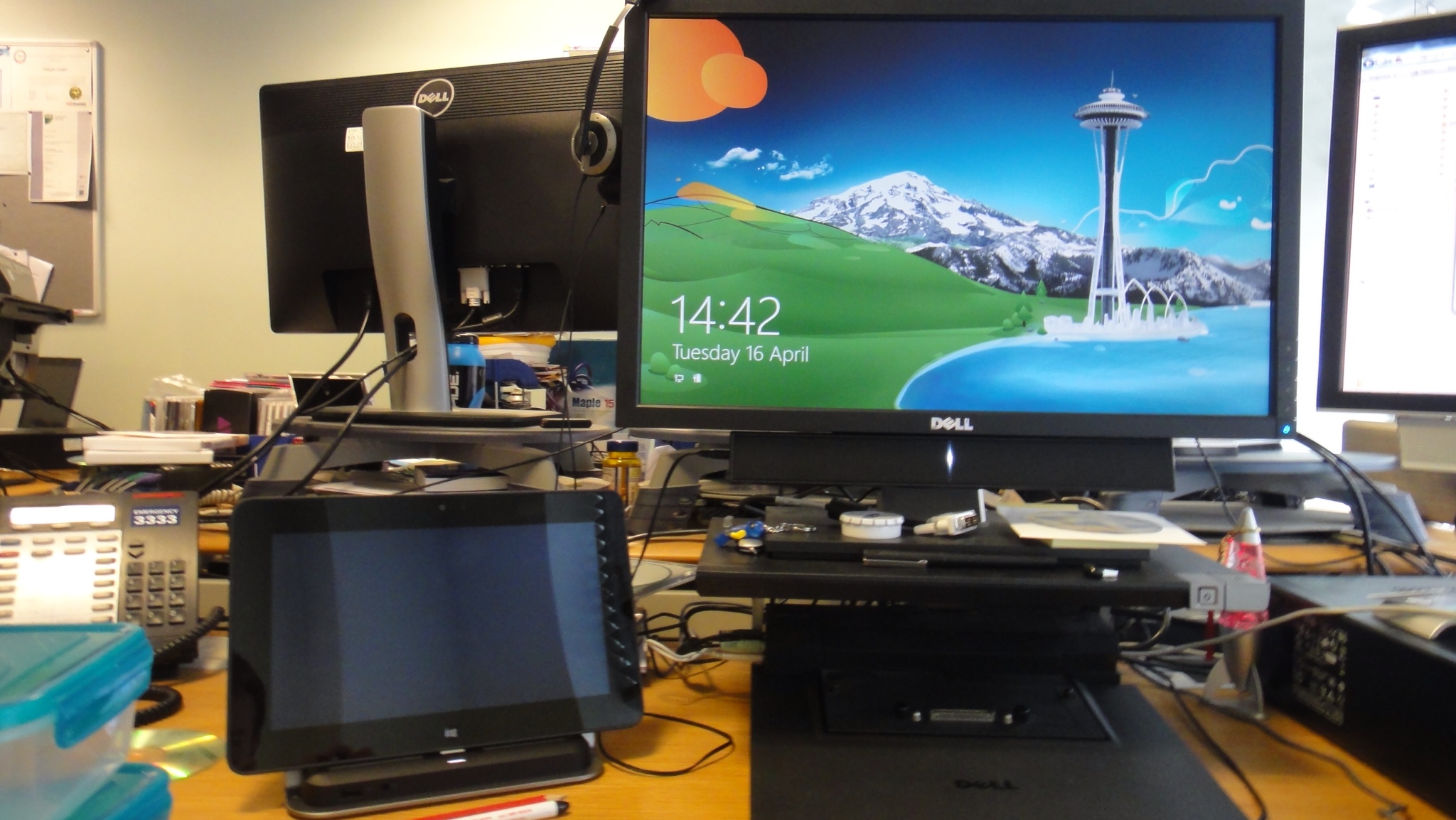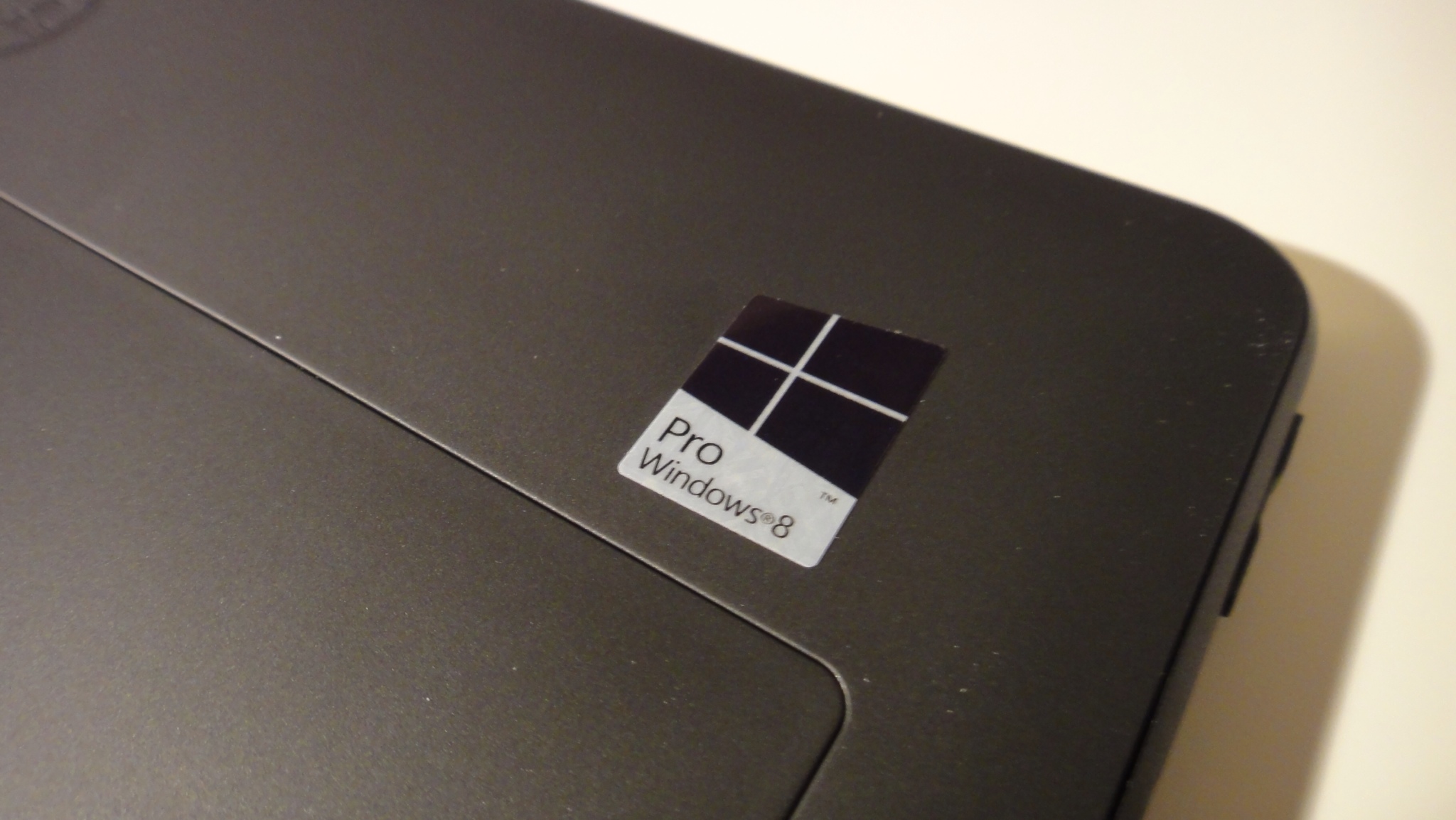Dell Latitude 10 Tablet Review
The worlds of corporate IT and consumer electronics are colliding and IT Departments, once used to having complete control over the devices and services at the office, are now having to respond to a deluge of different smartphones, tablets and other consumer gadgets being brought in from the home. Just saying 'No' isn't a good enough answer anymore, especially as a lot of those people bringing their gadgets in are the people who run or own the companies anyway!
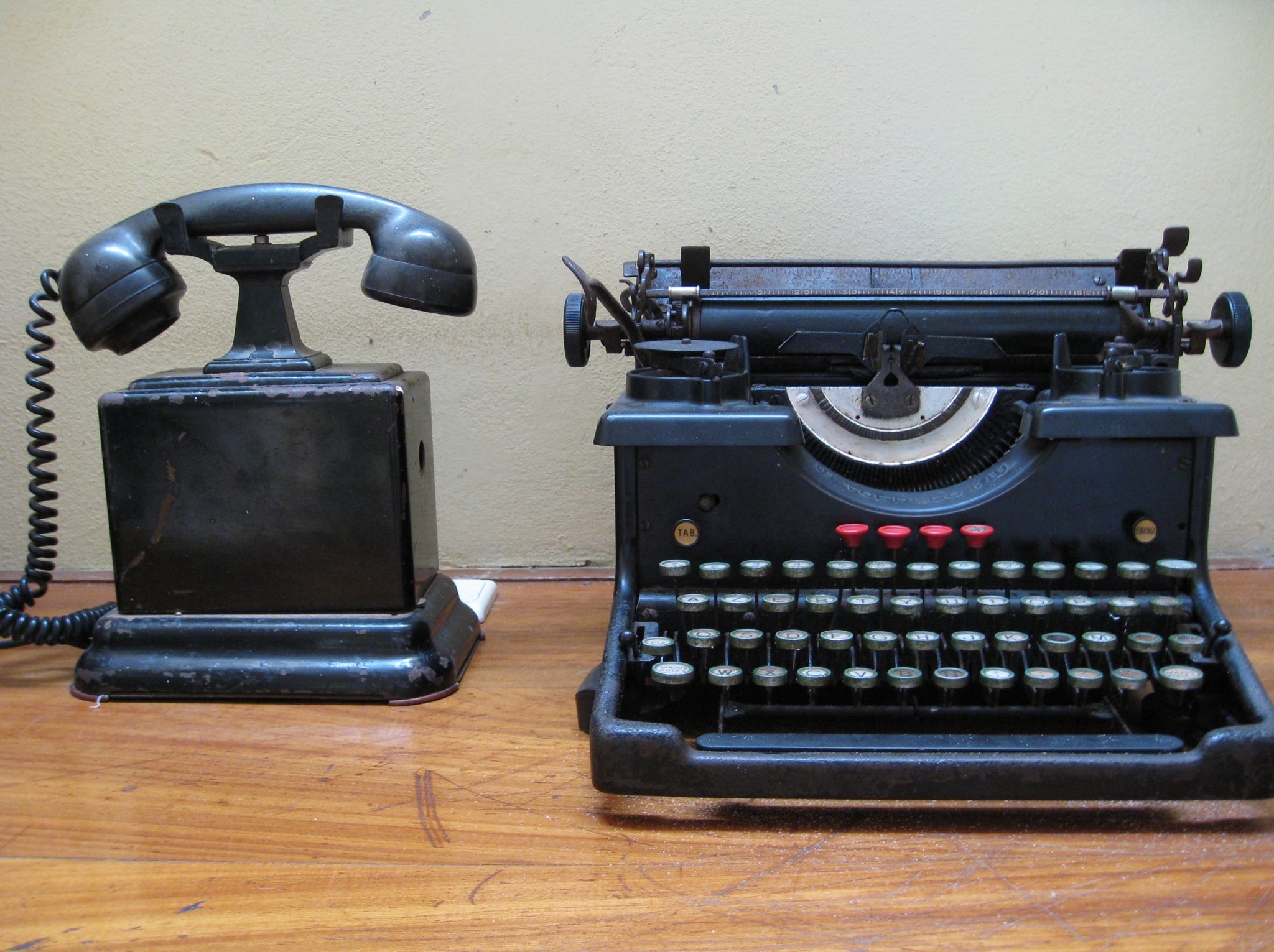
As both an avid consumer electronics fan and an IT guy, I can empathise with both sides. Your IT Department has been given a budget to supply the IT services (which consist of a lot more than just the computer on your desk), making sure the right applications are available to the right people at the right time and NEVER EVER available to the wrong people (on pain of death).
By having control over the devices you access these services with, IT can keep the costs down and the quality of support up by standardising the equipment, getting the best prices and after-sales care possible and maintaining security and other processes the regulations dictate, without stopping people being able to actually do their jobs. The devices they buy are designed for this.
It's also true that a £399 laptop from PC World is not better value than the £700 one that your IT Department is buying, even if the specifications appear to match. Have you ever had a problem with your PC World one? Had 5 phonecalls all lasting over an hour to a call-centre person who asks you if you've turned it off and on again before asking you to drive it back to the store? (where a teenager can patronise you?). IT Departments haven't got time for that. An enterprise laptop comes with years of warranty that include next day parts delivery, immediate telephone support (technician to technician) and perhaps a stock of loan machines to keep you working whilst the other is fixed (all the time keeping your data safe). A consumer laptop, television, tablet or whatever maybe cheaper up front but you're buying a different product designed for a different environment.
That said, a happy user is a productive user and it is right that IT Departments should try to accommodate where possible. Wanting to use your smartphone for office work is a definite plus. Access to email, calendar, contacts etc when away from your desk for any amount of time makes you more productive and for many offices, this should result in money being saved with little extra risk.
The main controversy between users and IT Depts has to be the iPad and users wanting to be furnished with one by their employer. Whenever a procurement request comes in for an iPad, someone will often say "What on earth do they need one of those for?". It's a valid question. An iPad costs as much as a laptop, yet at work is not nearly as functional, beyond the usual email and calendar stuff. And, since it can't replace a laptop, the user will probably also want a laptop, and a smartphone and is now starting to cost the office a fortune!
Of course if a company wants it enough, there are products out there to give the iPad better connectivity to the corporate network and its traditional IT Services, but at a cost (and you'll still need to run the traditional stuff for everyone else).
Recently I'd been wondering if a tablet computer aimed at enterprise could sway people away from wanting an iPad, the trigger for this being that people at my work were starting to see the limitations of the iPad and were ending up carrying a laptop round too. Why not buy a tablet that is geared towards enterprise that could perhaps replace the laptop too? A tablet like the Dell Latitude 10 for example.
For the past couple of weeks, I've left the personal iPad at home, left the (back-breaking) work laptop in its bag and made a switch to see whether the Latitude 10 can replace both of these devices in their respective roles.
Unboxing the Latitude 10 is not a special time. The 'Apple Experience' starts with the box, they want you to be in love already, Dell use the box to transport the tablet to you, nothing more. Hopefully you don't care about this.
Unwrapping the Latitude 10, first impressions are not unpleasant however. Earlier attempts from Dell et al felt to me like laptop screens snapped from their keyboards. This feels like it was always meant to be a tablet and also feels very well made. The soft-touch plastics on the rear make the device look smart and understated whilst feeling nice in the hand. Like the iPad, it's not one to be held in one hand for very long, but this time because it encourages horizontal orientation and is a widescreen, the weight balance pulls it away from you. Although a 10" screen is a perfectly reasonable size for a tablet, I wonder if Dell could work on shrinking the bezel a bit, as it looks a little lost in those big black borders.
Whilst the iPad focuses on being a pretty thing in a pretty box, the Latitude is showing its enterprise credentials by offering a lot more flexibility. For a start, there are more options available to you when you're buying it. Not only can you specify how much storage you would like, you can get a powered desktop docking station which includes USB and a proper network socket for a cabled connection (WIFI isn't always everywhere at work and certainly isn't as fast or secure). Finally, you can get a stylus for handwritten notes and, brilliantly, a choice of batteries. Not only does the Latitude 10 support a removable battery, the larger of the two offerings reportedly offers usable runtime of more than 20 hours! I had the smaller one myself, which still offers an iPad rivalling 12.5 hours and doesn't suffer the extra weight and a bulge on the back that the larger compromises with.
Bringing the laptop into the comparison, this battery life is of even more significance when you consider that the Latitude 10 runs full Windows 8 Pro. It can join the office network and (so long as your applications support Windows 8) run all of your corporate applications, full Microsoft Office and connect to shared drives, personal filestore and all of the IT that most professionals rely on day to day in their jobs. Whilst my laptop is technically more powerful, the weight and battery life of under 3 hours limit its usefulness away from the desk and I was keen to see whether the lesser processing power could be mitigated by the excellent portability and battery life of the tablet.
In the docking station, I was pleasantly surprised. The dock itself is sturdy and it's easy to sit the tablet into the connection point. An HDMI video connector on the back as the only option seemed an odd choice, as none of our work monitors have one, but I sourced an adaptor and soon had it connected to the network, a 23" monitor and a keyboard and mouse. From there, I installed Office 2013, downloaded some of the corporate applications that I use daily and set it to work.
During those periods at my desk, I would say that the Latitude 10 had no problem keeping up with demands. Typically my laptop runs email, has a document or two open, our helpdesk software and a web-browser open. Asking several applications to work on things at once slowed things a bit, but never to the point of frustration. I'm not sure power-users would be too happy (I hear rumours of faster versions on the way), but if you value mobility and most of your software is 'office' type rather than developer or graphics, you should get along just fine.
With full keyboard and mouse support, I might have forgotten that I was actually working from the tablet, but of course it was still there, providing an additional screen, which I tended to use for accessing the Windows 8 interface (usually hateful on a traditional PC, but fine here on the responsive touchscreen) and keeping chat windows open on whilst communicating with my colleagues.
When it came time to go to a meeting (much too often), the Latitude 10 could be quickly put to sleep and woken up again within a few seconds once sat back down. Here, my initial impressions were not so good, in fact I didn't like it at all the first few times. The screen is of a good quality, it's easily bright enough and vibrant enough to compete with everything, except perhaps an iPad. The resolution on the Latitude 10 is about the same as a typical laptop's and this is fine at the distances you tend to sit from them. But face up on the table, right in front of you, the text looks blocky compared to the paper-like sharpness of the iPad. I use a tablet in meetings to primarily record actions and take notes. The Latitude is a functional match for the iPad here, perhaps ahead with the handwriting recognition (untested) but it was a less 'happy' user experience. I still dispute that widescreen is the best format for a tablet, as it's too narrow when turning it to 'portrait' for a more paper-notepad-style review and notation exercise. However, if you value the added connectivity that Windows 8 gives you here, being able to bring up PowerPoint, connect to other enterprise services that the iPad can't, from the meeting room then this would likely matter less to you, especially with the mini-HDMI connector making it easy to throw the screen up onto a projector. I certainly much prefer bringing a tablet to a meeting over a laptop in either case. Typing makes a noise and the screen creates a barrier between you and your colleagues.
On the move, it becomes clear that the Latitude 10 really is the first device that could seriously disrupt the need for a consumer tablet and a laptop when working. Those tablet advantages of a quick or instant start up and long battery life, combined with a full enterprise grade operating system mean that you can work how you want, where you want, when you want. People who travel for work I can see really enjoying the flexibility of this device and whilst it's not as beautiful as an iPad, nor does Windows 8 have the same App Store support that the iPad enjoys, it is a powerful rival for people who appreciate function first.
I don't think the Latitude 10 is a rival for the iPad as a status symbol just yet. If you're looking at an iPad request for a senior member of staff, it's probably still worth signing it off. The iPad makes a good case for itself at board-level, it's an excellent way to go paperless, as well as keeping the powers that be in touch with their email. If people are expecting to use it this way, you shouldn't get too many support calls anyway.
For us consumers and folk in more modest positions, whilst we might not always be able to expect work to provide us with an iPad, those of us that have bought our own should keep trying to persuade IT to let us use them, as they can augment our productivity whilst bringing a little beauty to the often somber world of the office. Should you be given a Latitude 10 to work with however, you might find it's the only device that you need and your IT Department will sleep better at night.
Jp
Photo Credits

